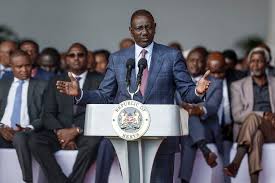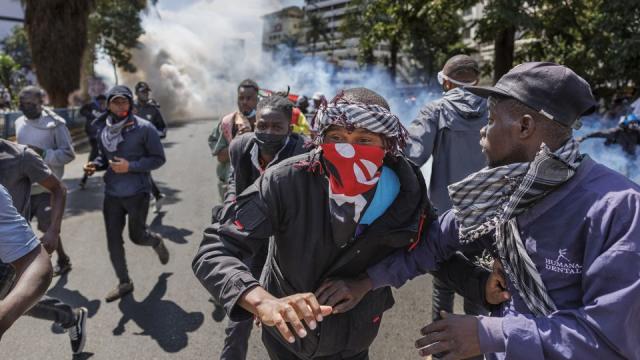Kenyan President William Ruto announced the withdrawal of planned tax hikes, bowing to pressure from widespread protests that had turned violent. This decision comes in the wake of demonstrations that saw protesters storm parliament and clash with police, resulting in at least 23 deaths and numerous injuries across the country.
Ruto’s televised address marked a major concession to the week-old, youth-led protest movement that had rapidly evolved from online condemnations of tax increases to mass rallies demanding broader political change. The president stated he would not sign the 2024 finance bill containing the tax hikes, instead recommending to parliament that all of its clauses be deleted.

This climbdown represents a significant victory for protesters but has not fully quelled the unrest. Many demonstrators took to social media, vowing to continue with planned rallies and reiterating demands for Ruto’s resignation. Prominent activist Boniface Mwangi called for a “1-million-people march,” highlighting the ongoing tensions despite the president’s concession.
The protests had escalated dramatically, with demonstrations documented in at least 35 of Kenya’s 47 counties. The unrest saw police open fire on crowds around parliament, while protesters broke into the senate chamber and national assembly. The widespread nature of the protests underscores the depth of public discontent with the proposed economic measures.
Ruto’s decision places him in a challenging position, caught between the demands of his citizens and those of international lenders like the IMF, which has been urging the government to cut deficits. The president announced plans to start a dialogue with Kenyan youth and implement austerity measures, beginning with cuts to the presidential budget.

The protest movement, which began as an online outcry against taxes on essential items like bread and diapers, has evolved into a broader call for political change. While the movement has no official leader and has urged established opposition figures to stay away, some of Ruto’s political rivals have expressed satisfaction with his climbdown.
As Kenya grapples with this political crisis, the international community watches closely. The country’s sovereign dollar bonds traded largely flat despite Ruto’s rejection of the finance bill, indicating ongoing economic uncertainty.
This episode highlights the delicate balance between implementing necessary economic reforms and maintaining social stability. It also underscores the growing influence of youth-led, social media-driven movements in shaping political outcomes in Africa.
As the situation continues to unfold, all eyes will be on how Ruto’s government navigates these challenges, balances competing demands, and addresses the underlying issues that sparked the protests. The coming days will be crucial in determining whether this concession leads to a period of calm or further political upheaval in Kenya.



